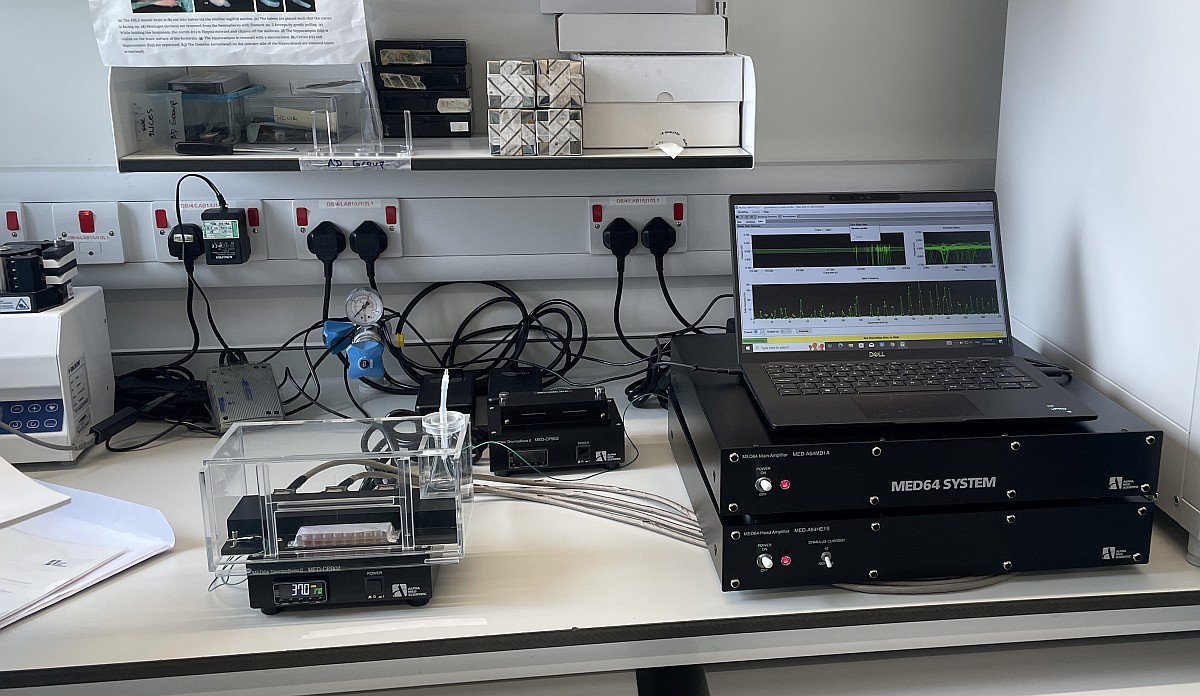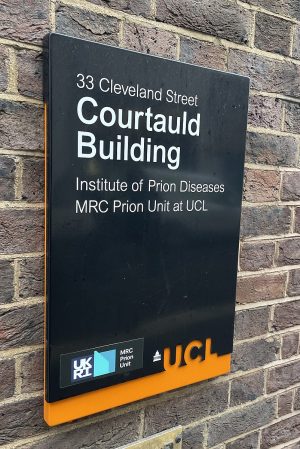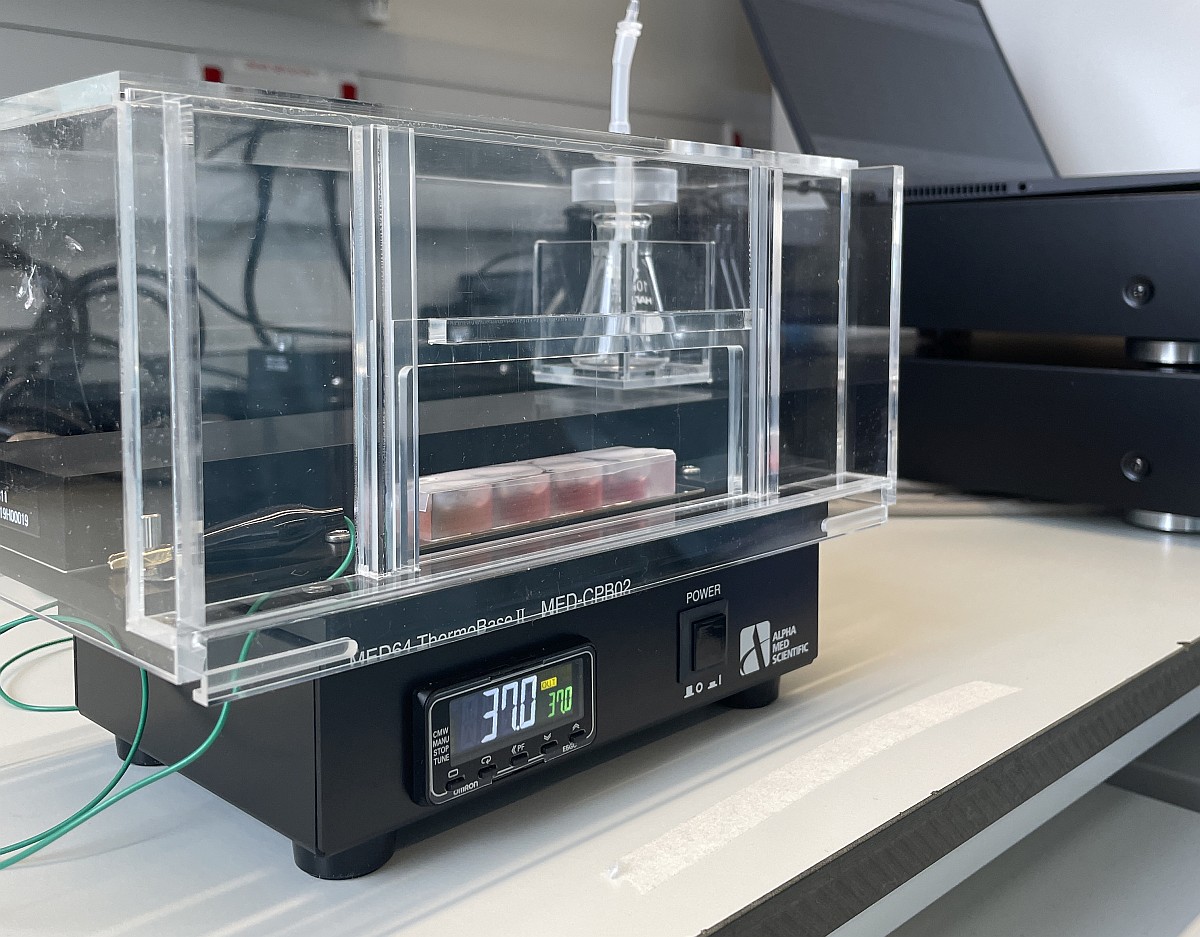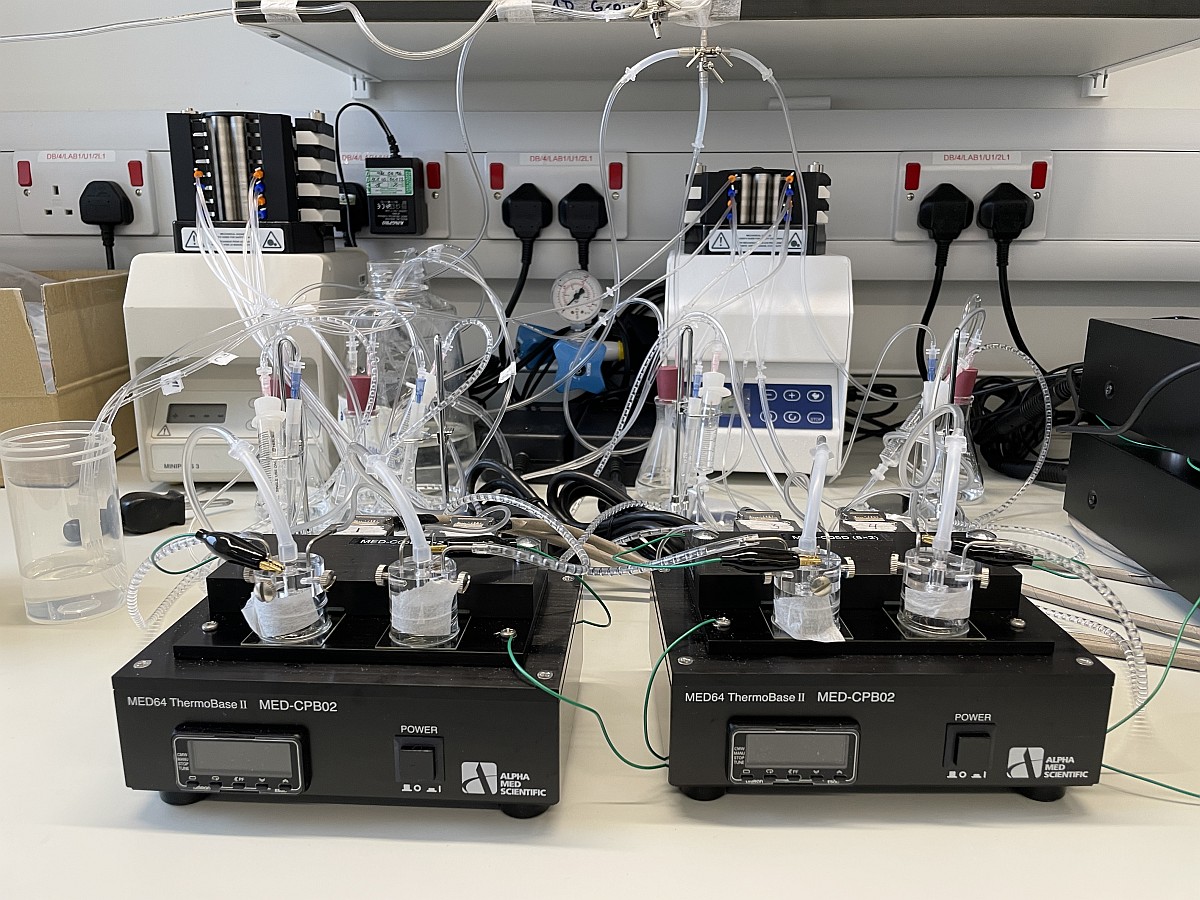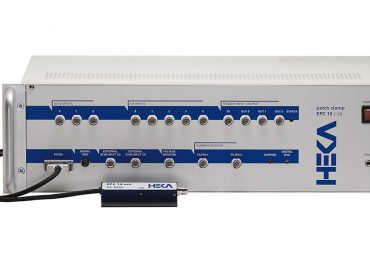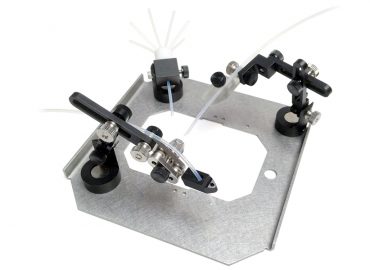MED64 Installation at UCL MRC Prion Unit
Using MEA technology to aid prion/prion-like protein neurotoxicity research
Introduction
Formed in 2017, within the faculty of Brain Sciences at University College London, the Institute of Prion Diseases incorporates the MRC Prion Unit, which undertakes cutting-edge research into prion disease and other neurodegenerative disorders.
Such studies often focus on molecular, biochemical, genetic, and immunological aspects of the respective diseases, but electrophysiological examination of neurons and brain slices can provide further insights into disease characterization, the basis of neurotoxicity and potential treatment strategies.
As one of the lead researchers at the MRC Prion Unit, Dr Silvia Purro has a specific interest in prion-like neurodegenerative diseases such as Alzheimer’s and recently secured funding to acquire a MED64 Multi-electrode Array System for use within the institute.
Together with her colleague Dr Iryna Benilova, Dr Purro planned to use this MED64 system to carry out electrophysiological recordings from mouse brain slices after the addition of brain extracts or recombinant proteins, following a protocol similar to that of Corbett et al., 2019. As well as brain slice recordings, they also hoped to record from primary neuronal cultures, in order to examine the electrophysiological effects of neurotoxic brain extracts and their mechanism of toxicity.
In March 2023, Digitimer’s Gareth Thompson and Ryan Arant from Alpha MED Scientific Inc. visited Dr Purro and her colleagues to spend a couple of days installing their new Quad II/Allegro MED64 System and providing on-site training. Installation was rapidly followed by a period of system familiarisation, with the first high-quality recordings from cortical primary cultures being achieved within a couple of hours of the system being switched on.
Versatile Low-Noise MEA Recording for Multiple Preparation Types
Each standard MED64 System includes a 64 Channel Main Amplifier and Head Amplifier. The MED64 System can be configured to use a variety of different MEA probes and connectors, which are specified according to the preparation, the number of electrodes required per sample, and the type of experiment being undertaken.
Probe connectors provide the electrical connection between the amplifier and the MEA probe. Because the MRC Prion Unit required a system that could be used for studies of cultured cortical neurons, as well as Long Term Potentiation (LTP) experiments on acute brain slices, the system was supplied with two different types of probe connector and a selection of MEA probes.
The Allegro connector is designed for use with four or 8 well multi-well probes, allowing small volumes of cultured neuronal cells to be simultaneously examined. Because the system is limited to a total of 64 channels, the greater number of samples means that there is a reduction in the number of electrodes per well. Therefore, the 4 well probes have 16 electrodes per well, while the 8 well probes have 8 electrodes per well.
For brain slice LTP studies, the single Allegro probe connector could be swapped for a pair of Quad II Duet Connectors, each of which can support two 16-electrode MEA probes. This means that simultaneous recordings can be made from up to 4 slices at a time.
Bench-top or Incubator-based Recording
The Allegro and Quad II probe connectors don’t contain any active electronics, so subject to cable routing options, it is entirely feasible to place them inside standard tissue culture incubators. This means that long-term recordings from cells or organotypic brain slices may be undertaken.
However, for this particular installation at the Prion Institute, a pair of dedicated probe connector heaters was included with the system. These compact heaters allow probes and connectors to be maintained at adjustable physiological temperatures.
In addition to the heaters, the Allegro connector was supplied with an environmental chamber cover that allows benchtop incubation and CO2 delivery while cells are outside the incubator.
Perfusion Caps Permit Drug Delivery to Slices
Each Quad Duet Connector was supplied with a perfusion cap that incorporates adjustable stainless steel inflow and outflow tubing, a platinum wire reference electrode and a gas inlet for O2/CO2 delivery to the slices.
Used in conjunction with a pair of 4 channel Gilson Minipuls peristaltic pumps, the perfusion caps permit pharmacological or toxicological studies of brain slices.
The perfusion caps are easily removed and replaced for slice mounting and are compatible with MED Probes having a 10 mm chamber height. Each comes with pre-configured perfusion and pump tubing available for immediate use.
We very much look forward to learning how the Prion Unit’s new MED64 system is used for their research studies of neurotoxicity. If you would like to learn more about the capabilities of the industry-leading Alpha MED Science MED64 MEA systems, then please do not hesitate to contact us. We can send you a brochure and provide a tailored quote for your specific application or applications.
Reference
Corbett GT, Wang Z, Hong W, Colom-Cadena M, Rose J, Liao M, Asfaw A, Hall TC, Ding L, DeSousa A, Frosch MP, Collinge J, Harris DA, Perkinton MS, Spires-Jones TL, Young-Pearse TL, Billinton A, Walsh DM. PrP is a central player in toxicity mediated by soluble aggregates of neurodegeneration-causing proteins. Acta Neuropathol. 2020 Mar;139(3):503-526. doi: 10.1007/s00401-019-02114-9. Epub 2019 Dec 18. PMID: 31853635; PMCID: PMC7035229. (weblink)
